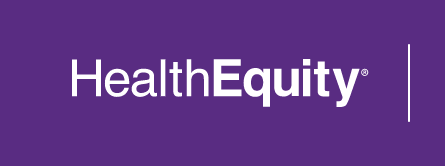If money makes the world go 'round, then it's a good idea to be money smart. When it comes to assessing how Americans are doing on basic benchmarks, one key area to look at is the intersection of healthcare and money. In this area, Health Savings Account (HSA) trends are an interesting indicator of Americans' health savings behaviors.
These days, HSAs are almost a household name. Created in 2003, there are now more than 32 million accounts with a total of $98 billion in assets.1 While it's promising that the sheer number of HSAs are increasing, digging a little deeper shows Americans still have improvements to make in their understanding of health savings. For example, in a recent EBRI analysis, by the end of 2020 the average HSA balance was about $3,200 and ranged from a little over $700 for accountholders under age 25 to balances of nearly $7,000 for accountholders over age 65.2 While any health savings can help cover unexpected medical emergencies, many Americans still have high healthcare spending and may struggle to cover medical expenses-routine or unforeseen.
Change in perspective
Further exploration finds that perhaps a shift in attitudes toward health savings coupled with a better understanding of how HSAs work might help reverse some lagging trends. With a perspective change, people may make more progress on saving to cover medical expenses and manage health in retirement. Channeling this mindset, adjusting thinking to view HSAs as more than a spending account may yield lasting rewards and help close the widening gap in retirement savings. Let's take a closer look at recent trends and pinpoint ways employers and benefits advisors can help to educate employees on ways to make the most out of their HSA.
1. Contributions are greater than withdrawals
In 2021, 40 percent of all accounts contributed more than they distributed.1 This is encouraging in the sense that collective efforts to educate accountholders that HSA funds never expire must be working. It's important to repeat the message that there is no deadline for spending HSA funds. And to reiterate how HSAs can be used to save for healthcare in retirement.3
2. Employers contribute about a quarter of HSA funds
Recently, we made the case that employers are uniquely positioned to contribute to employee HSAs through an employer match. When used, an employer match can help drive employee participation in their HSA and potentially lower overall healthcare costs. In 2021, employers contributed 26% of all HSA dollars for an average employer contribution cost of $867. And, as of January 2022, in that month alone 33% of HSA accounts received a contribution from an employer with employers supplying 58 percent of money into HSA accounts.13. A small but increasing number of accountholders see their HSA as an investing account
One of the big advantages of an HSA is how flexible it is to use. Accountholders can spend, save, and invest their HSA dollars to have the potential for tax-free4 account growth.5 In 2021, Devenir found that contributions outpaced distributions-$42.5 billion dollars added and $30.7 billion spent-with 7 percent of all HSA accounts having a portion invested. If you're in a position to do so, encourage employees to view their HSA as a way to build long-term health savings both for now and in their retirement future.
To further drive this home, while the HSA investor subset only includes 7 percent of HSA accountholders, that group holds a whopping 44 percent of HSA assets (contributions and investments); the combined assets of an average HSA investment account holder is 7.3 times greater than the average balance of a non-investment account.1 If our nation has a larger population of HSA investors, there's a greater chance that more individuals will have money stashed away for healthcare needs as they age.
More resources to boost your HSA know-how
As we think about recent trends on HSA adoption and investment, it's clear that education can play a big role in busting HSA myths and reinforcing important messages. Here are several resources to help empower clients and elevate member education. Explore the links below to find support, insight, information, and relevant content.
Best practices for benefits professionals:
Take a moment to bookmark this page. You'll find our upcoming and on-demand webinars, as well as our latest thought leadership content. In fact, consider attending the next webinar, Health Savings Accounts and the Secret to Closing the Retirement Savings Gap, to explore ways to optimize retirement savings.
On-demand member webinars:
Our short, 15-minute webinars give members unique insight into each benefit account type. Members can compare their options and learn how to get the most from their benefits.
Grab the guide
For a broad overview of HSAs, tap into the HSA Guide. Members can easily see how to save, spend, and invest with their HSA.
1 Devenir Research. 2021 Year-End HSA Market Statistics & Trends. Report release date: 3.23.2022
3 After age 65, if you withdraw funds for any purpose other than qualified medical expenses, you will be subject to income taxes. Funds withdrawn for qualified medical expenses will remain tax-free.
4 HSAs are never taxed at a federal income tax level when used appropriately for qualified medical expenses. Also, most states recognize HSA funds as tax-deductible with very few exceptions. Please consult a tax advisor regarding your state's specific rules.
5 Investments are subject to risk, including the possible loss of the principal invested, and are not FDIC or NCUA insured, or guaranteed by HealthEquity, Inc. Investing through the HealthEquity investment platform is subject to the terms and conditions of the Health Savings Account Custodial Agreement and any applicable investment supplement. Investing may not be suitable for everyone and before making any investments, review the fund's prospectus.
HealthEquity does not provide legal, tax, financial or medical advice. Always consult a professional when making life-changing decisions.


